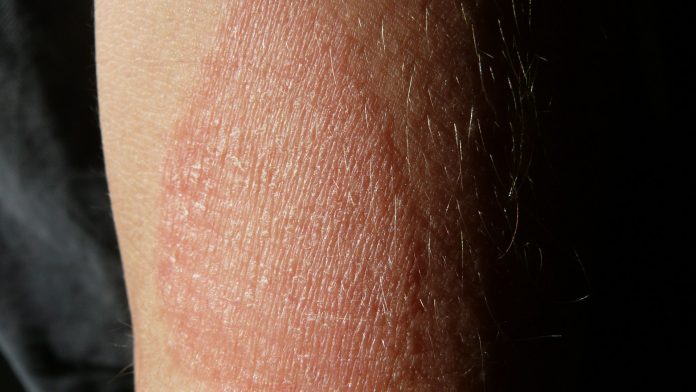
Those with atopic eczema in adult life have an increased risk of cardiovascular problems, according to a new UK study published this week.
The study, which is the largest of its kind, explains that adults suffering from atopic eczema have a moderately increased risk of cardiovascular problems including heart attacks, stroke and an irregular heart rate.
These findings have helped support researchers’ calls for targeted screening and a focus on prevention strategies to be considered among patients with eczema.
Chronic inflammatory diseases
Currently, there is growing evidence that individuals with severe chronic inflammatory diseases, such as rheumatoid arthritis and severe psoriasis, are possibly at higher risk of cardiovascular disease (CVD), independent of more traditional risk factors.
Up to 10% of adults are affected by eczema, and previous studies looking at the risk of CVD in patients with atopic eczema have shown mixed results.
Finding more definitive results
In a bid to find a definitive link between adults with eczema and risk of cardiovascular problems, an international research team led by Sinead Langan at the London School of Hygiene & Tropical Medicine set out to analyse data.
The data was from the UK’s Clinical Practice Research Datalink and comprised 385,000 adults with an average age of 43 years with atopic eczema.
Patients were classified as having mild, moderate or severe atopic eczema and were monitored for an average of five years. During this time, major cardiovascular events were recorded:
- Heart attack;
- Unstable angina;
- Heart failure;
- Irregular heartbeat;
- Stroke; and
- Cardiovascular death.
What did the study find?
After taking known cardiovascular risk factors such as weight, smoking and alcohol intake into consideration, researchers found that patients with severe eczema were at a 20% increased risk of stroke, a 40-50% increased risk of unstable angina, heart attack, irregular heartbeat and cardiovascular death, and an almost 70% increased risk of heart failure.
It was found that patients with severe or more active eczema had a greater risk.
What the experts say
The authors concluded: “Severe and predominantly active atopic eczema are associated with an increased risk of cardiovascular outcomes. Targeting cardiovascular prevention strategies among these patients should be considered.”
In a linked editorial, John Ingram, consultant dermatologist at Cardiff University, said that the next important step is to explore whether expensive next-generation biologic drugs reduce CV events in patients with severe eczema.
Press release: The BMJ









